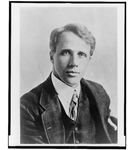

#Symbolism in the road not taken full#
Though he has only known this wild, post-apocalyptic world, he's still full of kindness and innocence. The boy's gentle nature provides us, readers, with hope for the future.

The “golden chalice” makes the boy seem angelical. The boy’s hair being described as a “golden chalice,” stands for the boy sometimes being like a divine child who can inspire the man to goodness. His father serves as a realistic intermediary between the boy and ideal goodness. Thanks to his father though, the boy survives, and keeps focused. Since in McCarthy’s post-apocalyptic world, the line between kindness and vulnerability is very fine. In this case kindness stands for his vulnerability. A further example that goes hand-in-hand with the boy’s innocence would be his kindness. He was willing to give him his food and not eat himself so the man could eat. In a certain time the boy is willing to sacrifice himself to help the man they ran into. Throughout the novel they run into different people, he always wanted them to come along with his dad and him, and he was always willing to help them no matter if they are “good” or “bad. He is always looking for the goodness of people. The boy exemplifies innocence he demonstrates that there still is purity in the world. The boy himself is also a form of symbolism.

Therefore, the sea stands for the other life, the one you get when you’re dead, which in the case of the man and the boy would be best for them since the life they are “walking dead,” they are living a pitiable life. This symbol goes in hand with the quote “the grass is greener on the other side,” it is like if they are on the wrong side of it, like if they go to the other side everything would be better, and prettier. In another scene the man and the boy come across a river, which symbolizes after death, or the gateway to the afterlife. It represents and supports the theme of survival present trough out the novel, what they have to be in order to survive in this new world. In this case the mirror symbolizes what the man has turned into. The man and the boy went into a house and as they turned around a corner there was a mirror, and as the man saw his reflection he instantly reached for his gun, thinking it was someone else. ” Another example of symbolism is the mirror. In this quote the man refers to fire as being a symbol of them being the only ones left who have feelings in the world, who have a conscience, who still hold true to things that make us human, like empathy, hope, love and the will to survive without sacrificing your beliefs, things other people in this new world have lost.Ĭompared to the others, “the bad guys,” The man and his son don’t kill, they don’t steal from the living, they help where it’s possible to do so, and, most importantly in the novel’s symbolism, they don’t eat other people, which can differ you from “good” and “bad. Another example of symbolism is when the man tells the boy that he they are the only ones carrying the fire. It also represents courage because they have the bravery of going on without knowing anything about the road, courage of going into the unknown. Hope that when they get to the end of that road they will be safe in a safe place. The road means that for them it is the only hope of surviving. The road symbolizes hope, as well as courage. McCarthy refers to the road on several instances, thus making it imperative to the novel. An example of symbolism, and the most noteworthy would have to be the road. Symbolism is also often used to support a literary theme in a subtle manner, which in this case is what McCarthy did. The author may constantly use the same object to express deeper meaning. Symbolism is when the author uses an object or reference to add deeper meaning to a story. Although he brought into play several devices such as: imagery, tone, metaphors, and a couple of similes, the most significant would have to be symbolism.

In McCarthy’s book, The Road, McCarthy is able to illustrate not only the setting of the book, but feelings, expressions, and actions, by various literary devices.


 0 kommentar(er)
0 kommentar(er)
